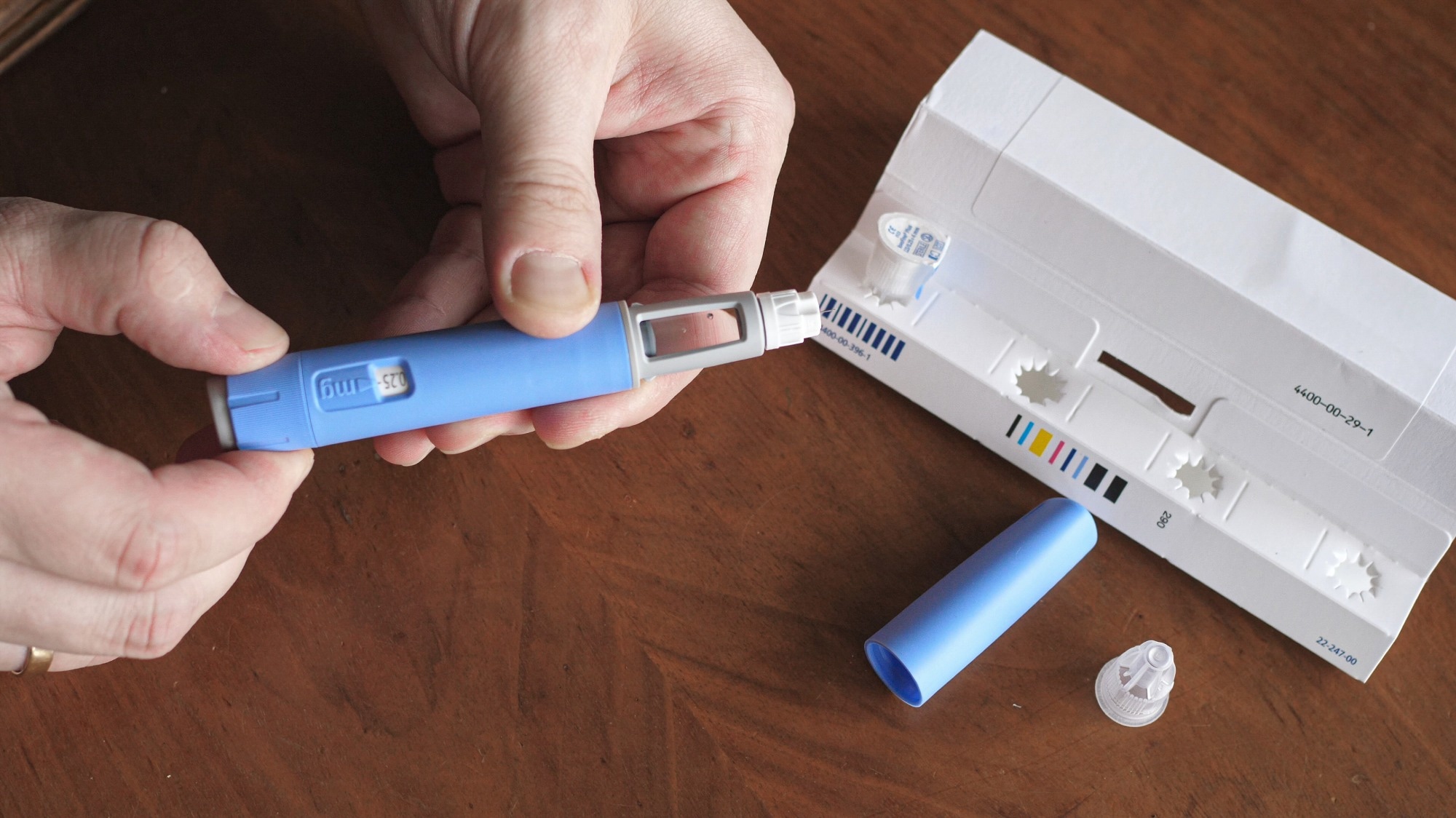They found that as compared to the placebo, the administration of semaglutide (once weekly) reduced the risk of kidney disease and altered KDIGO risk categories, regardless of KDIGO risk at the baseline.
 Study: Effects of Once-Weekly Semaglutide on Kidney Disease Outcomes by KDIGO Risk Category in the SUSTAIN 6 Trial. Image Credit: myskin/Shutterstock.com
Study: Effects of Once-Weekly Semaglutide on Kidney Disease Outcomes by KDIGO Risk Category in the SUSTAIN 6 Trial. Image Credit: myskin/Shutterstock.com
Background
Diabetes is a major cause of chronic kidney disease (CKD) and kidney failure, with 40% of T2D patients developing CKD. Those with T2D and CKD face high CV risks, including atherosclerotic CV disease and heart failure.
GLP-1 (short for glucagon-like peptide 1) receptor agonists (GLP-1RAs) are used in T2D treatment for their benefits on hyperglycemia, weight management, and CV safety. Some show improved CV outcomes and beneficial effects on kidney disease, such as reducing albuminuria and slowing kidney function loss.
In the trial SUSTAIN 6 (short for trial to evaluate cardiovascular and other long-term outcomes with semaglutide in subjects with T2D), weekly semaglutide could significantly reduce the risk of major CV events and secondary kidney disease outcomes compared to placebo in people with T2D and high CV risk.
A post hoc analysis of the trials SUSTAIN 6 and PIONEER 6 (short for peptide innovation for early diabetes treatment) confirmed that taking semaglutide once daily slowed the estimated glomerular filtration rate (eGFR) decline.
KDIGO risk classification assesses albuminuria and eGFR and predicts CV events, kidney failure, and death risks. In the present study, researchers conducted a post hoc analysis of the SUSTAIN 6 trial aimed to evaluate the impact of semaglutide, taken once weekly, on kidney disease outcomes over different KDIGO risk categories.
Additionally, they sought to determine whether semaglutide, compared to placebo, could alter participants' KDIGO risk categories over the treatment duration.
About the study
The SUSTAIN 6 study involved adults with T2D and established CVD or high CV risk, who were randomized to receive either once-weekly semaglutide (0.5 mg or 1.0 mg) or placebo alongside standard care for two years.
Participants were ≥50 years of age with CV disease or CKD or ≥60 years of age with CV risk factors, excluding those with kidney failure on dialysis or transplant.
The present post hoc analysis stratified 3,238 participants from the SUSTAIN 6 trial into four KDIGO risk categories (low, moderate, high, and very high) based on baseline eGFR and urine albumin-creatinine ratio (UACR) levels to assess the treatment effects on kidney outcomes.
Participant-data from the PIONEER 6 trial were excluded due to the lack of systematic UACR collection.
The study assessed kidney disease outcomes, eGFR slope, and changes in UACR over a median duration of 2.1 years. The kidney disease composite endpoint included serum creatinine doubling, macroalbuminuria, eGFR < 45 ml/min per 1.73 m2, kidney replacement therapy, or death by kidney disease.
Additionally, the movement of patients between KDIGO risk categories and the factors contributing to these changes were analyzed. Statistical analysis involved Cox proportional hazards modeling, random slope modeling, mixed modeling, logistic regression, and sensitivity analysis.
Results and discussion
Participants in higher KDIGO risk categories showed a higher incidence of reaching the kidney disease composite endpoint than those in the low-risk category, regardless of treatment allocation.
Semaglutide demonstrated consistent benefits across KDIGO risk categories, with fewer participants experiencing the composite kidney disease endpoint, smaller eGFR slope declines, and smaller UACR increases compared to placebo.
Participants receiving semaglutide had lower odds of moving to a higher KDIGO risk category (odds ratio, OR = 0.71) and higher odds of moving to a lower category (OR = 1.69) compared to placebo at the end of the treatment period.
Changes in UACR were found to drive the regression of the KDIGO risk category, particularly in lower-risk categories. In comparison, changes in eGFR were found to drive the progression in higher risk categories for both semaglutide and placebo groups.
The study is limited by the small number of kidney disease events analyzed, especially in the low-risk KDIGO category, which reduces the statistical power and affects the interpretation of treatment consistency across KDIGO categories and specific kidney disease outcomes.
Conclusion
Compared to placebo, semaglutide (taken once weekly) was found to reduce the risks of kidney disease endpoints across all the KDIGO risk categories.
Additionally, participants on semaglutide were more likely to move to a lower KDIGO risk category and less likely to progress to a higher risk category than those on placebo.
The findings highlight semaglutide's potential as an effective treatment option for managing kidney disease in individuals with T2D, irrespective of their initial risk level.